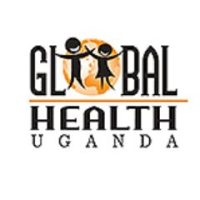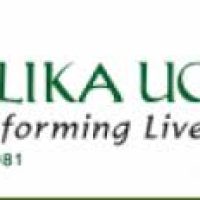The position is based in Kampala, Uganda. The Associate Programme Officer reports to Programme
Management Officer based at ITC HQ in Geneva. The focus of this position is on monitoring and
evaluation, communication and partnership engagement with implementing partners and the donor
agency KOICA.
The Strengthening Agribusiness Resilience and Competitiveness (STAR) project is financed by the
Korea International Cooperation Agency (KOICA) and is being implemented by the International Trade
Centre (ITC) from 2022 – 2026. The project is working towards increasing resilience to natural disasters
and competitiveness of producers and micro, small and medium sized enterprises (MSMEs) in ten
districts in Northern and North-Eastern Uganda. The project focuses on the cassava, shea and oilseed
value chains and is workin with all actors along the value chain for increased resilience and
competitiveness of MSMEs.
The outcome will be achieved through the implementation of the following 4 outputs:
Output 1: Capacity of producers and SMEs to become more competitive and resilient to natural disaster
risks increased
Output 2: Community based disaster risk management structures enhanced
Output 3: Service offering of Business Support Organisations (BSOs) and other service providers to build
SME natural disaster risk resilience and competitiveness improved
Output 4: National strategies and policies to improve the natural disaster risk resilience and
competitiveness of target agricultural value chains strengthened
The project is adopting a gender-responsive approach to support the inclusion and increased benefits
for women the value chains. By building partnerships with national institutions and private sector actors,
the project creates lasting change within the business eco-system, enabling MSMEs and producer
FUNCTIONS
Under the direct supervision of the Programme Management Officer, the Associate Programme Officer
will be responsible for the following duties:
• Assists in monitoring and evaluating the implementation of programmes and projects, including
supporting data collection, analysis, and reporting; helps review reports and documents to
identify issues and suggest improvements.
• Contributes to the preparation of internal and external reports on programme progress; supports
the development and implementation of Monitoring and Evaluation (M&E) tools and frameworks
for both internal use and with implementing partners.
• Provides support and guidance to implementing partners on M&E activities, including assisting
with data collection, reporting, and tracking project progress.
• Contributes to the preparation and distribution of communication materials for the project, such
as newsletters, videos, and promotional content, ensuring clear and accurate messaging.
• Assists in drafting and reviewing grant agreements, MoUs, and other partnership documents,
ensuring they align with programme goals and objectives.
• Supports the day-to-day management of activity implementation, helping monitor the progress
of implementing partners, identifying any challenges, and providing input to improve outcomes.
• Conducts research and analysis on programme operations, gathering and presenting statistical
data to support decision-making.
• Contributes to the preparation of written outputs, including draft reports, background papers, and
presentations, ensuring they are accurate and well-organized.
• Supports the development of partnerships with implementing part
RECRUITMENT QUALIFICATIONS
Minimum education and qualifications (level and field of study)
Advanced university degree (Master’s degree or equivalent) in business management, economics,
environmental science, environmental engineering, international development or a related field.
Note: A first-level university degree in combination with an additional two years of qualifying relevant
professional experience may be accepted in lieu of the advanced university degree.
Minimum experience (nature, length and field of experience)
A minimum of two (2) years of relevant experience in project or programme management, administration
or related area. Experience in climate resilience. Experience in agribusiness development.
Experience working with development institutions and/or NGOs. Experience working with the Korean
International Cooperation Agency (KOICA) projects would be an advantage.
Minimum language requirement
Advanced knowledge of English. Knowledge of Korean is an advantage.
Critical job-specific competencies
ITC core values: Professionalism, Integrity, Respect for Diversity
Competencies:
Professionalism: Knowledge and understanding of theories, concepts and approaches relevant to
particular sector, functional area or other specialized field. Ability to identify issues, analyze and participate
in the resolution of issues/problems. Ability to assist with data collection using various methods. Conceptual
analytical and evaluative skills to conduct independent research and analysis, including familiarity with and
experience in the use of various research sources, including electronic sources on the internet, intranet
and other databases. Ability to apply judgment in the context of assignments given, plan own work and
manage conflicting priorities. Shows pride in work and in achievements; demonstrates professional
competence and mastery of subject matter; is conscientious and efficient in meeting commitments,
observing deadlines and achieving results; is motivated by professional rather than personal concerns;
shows persistence when faced with difficult problems or challenges; remains calm in stressful situations.
Takes responsibility for incorporating gender perspectives and ensuring the equal participation of women
and men in all areas of work.
Communication: Speaks and writes clearly and effectively; listens to others, correctly interprets
messages from others and responds appropriately; asks questions to clarify, and exhibits interest in
having two-way communication; tailors language, tone, style and format to match audience;
demonstrates openness in sharing information and keeping people informed.
Teamwork: Works collaboratively with colleagues to achieve organizational goals; solicits input by
genuinely valuing others’ ideas and expertise; is willing to learn from others; places team agenda before
personal agenda; supports and acts in accordance with final group decision, even when such decisions
may not entirely reflect own position; shares credit for team accomplishments and accepts joint
responsibility for team shortcomings.
Commitment to Continuous Learning: Keeps abreast of new developments in own
occupation/profession; actively seeks to develop oneself professionally and personally; contributes to the
learning of colleagues and subordinates; shows willingness to learn from others; seeks feedback to learn
and improve.












